With the election fresh on our minds, it would be wise to push the pause button and assess where we are. What follows is a lengthier article than I usually write, but I encourage you to take a moment and ponder what I trust will be some Kingdom perspectives.
WHY AMERICA IS AT STAKE
The real debate in our country is not over economics or social issues. It is ultimately a debate over whether we stay true to The Founders’ intent for America; or whether we are to substantially reset the nation’s course – a struggle between those who are originalists and those who are progressives.
My own conviction is this: As The Church goes, so goes the nation. Our polarized nation may, in fact, reflect a polarized Church. For even as the nation is divided over how much of the ‘Founders’ intent ought to define us going forward, so The Church is divided over the authority of Scripture. Are The Scriptures our final authority, or do we radically re-interpret Scripture in the light of 21st century preferences?
As to our nation, the sobering truth is that the rationale for any sort of ‘patriotic’ loyalty is eroding. Those who seek to build on the intent of the Founders – the originalists – are loyal to that vision. Their loyalty is not to America ‘Whatever’, but America as the Founders understood her. A republic, not – in the strictest sense – a democracy. Those who seek to redefine the vision of America to fit their changing moral standards – the progressives – will not be any more loyal to an America that doesn’t fit their predilections.
My point here is not to argue the relative merits of either view but to simply note that we have entered the era of irreconcilable differences. The Civil War notwithstanding, this is unchartered territory.
The America of The Founders was not based on shared cultural history so much as it was based on ideas. A whole set of ideas that must be taken together: Individual rights, yes, but also civic responsibilities, representative government, allegiance to a Creator.
Today, we hold onto “the pursuit of life, liberty, and happiness” of The Declaration, but seem to have forgotten to “promote the general Welfare” called for in The Constitution; the fact that each individual is also a citizen of a community, has been lost in the discussion.
Unlike the French or the Ghanaians or The Chinese, our connection as a nation is not based on a shared culture, but shared ideas. We are a melting pot, which is good, but we need to keep in mind that a melting pot can only stay together if the ideas that formed her remain her foundation. America has no culture on which to fall back – only ideas. Once those ideas are no longer shared, there is no America. And it cannot be just some of those ideas, but the sum total of all the ideas working together.
Once that founding set of inter-related ideas splinters, the nation splinters.
Again, will the Right (Originalists) be loyal to an America that does not reflect the vision of The Founders? Will the Left (Progressives) be loyal to an America that does not reflect their preferences?
This polarization does not seem to alarm the majority of the emerging generation, because for the most part, they do not have brand loyalties, whether churches or otherwise. This means that they have no attachment to the brand known as the America of the Founders.
Thus America is becoming a rootless, non-shared culture. In part, this is because post-modernity insists that shared cultural values is arrogant. Today, many in the emerging generation would assert, “Your cultural values should not be imposed on my cultural values, and I want to relate to those in society who share my values. After all, whose values should be shared anyway?”
Ultimately, we are left with diverse communities who do not share common values, but only loyalty to their immediate tribe. Thus there is no motivation to have a broader sense of shared values because shared values is not a value to the emerging generation.
Some would argue, “We have a very important shared value: tolerance.” To that I would say, Tolerance is not a moral value; it is a social arrangement. It’s like ‘diplomacy’. Being ‘diplomatic’ is not a value but a method of social interaction. Tolerance can be one of the rules we socially interact by, but let’s not fool ourselves in thinking it’s a moral value.
The America of the future, then, will be what any group wants it to be – the Rousseauean social contract will keep changing. This will lead to a great power vacuum in which sub-cultures will seek to impose their will on the rest of the nation. This is exactly how Hitlers happen!
What the emerging generation may not realize is that to the degree that there are no shared values – and by the way, individual liberty by itself is not a ‘shared’ value precisely because it is an individual value – to that degree the State must impose its will on everyone in order to keep peace.
WHY AMERICA IS NOT THE ISSUE
At a deeper level America is not the issue. Because there is a culture on which The Church needs to be even more focused: THE KINGDOM.
We as The People of God need to be quite cautious about this idea of ‘American Exceptionalism.” I understand the posture of humility that says God has a calling and a season on America, as He does every nation. And while America is NOT the new Israel, there is a unique fear of God mixed into our country’s foundation, and that is to be honored and treasured. But the language of ‘American Exceptionalism’ may take this too far and ensnare us, as The Church, into the idolatry of nationalism… Where we cease to make the prophetic distinctions between America and The Kingdom of God.
We must be shaped by The Kingdom.
I’m not sure that we as believers are adequately aware of how much Americanism has shaped us.
At the Battle of Jericho, The Angel of The Lord appeared to Joshua and uttered one of the most important political pronouncements we have in Scripture: When Joshua was by Jericho, he lifted up his eyes and looked, and behold, a man was standing before him with his drawn sword in his hand. And Joshua went to him and said to him, “Are you for us, or for our adversaries?” And he said, “No; but I am the commander of the army of the Lord. Now I have come.” And Joshua fell on his face to the earth and worshiped and said to him, “What does my lord say to his servant?” (Joshua 5:13-14 ESV)
When we as A Church recognize that God is the Great No to political polarities, we may be more ready to say, “What does The Lord say to His servants.”
With God, there is no side but The Kingdom-side. Therefore in this election we need to hear the whole counsel of God.
To Be ‘Kingdom’ is to both embrace and judge culture.
For example, how do we address the issue of multi-culturalism? We are many different cultures in this nation, and we need the whole counsel of God to deal with the unfinished business of understanding multiculturalism.
To be kingdom-shaped is to be truly pastoral and prophetic. We are to be pastoral in looking for the special giftings in every ethnic culture in our nation. We are to be prophetic in judging every culture against Kingdom principles. If we’re not Kingdom-shaped, we will either exalt our own sub-culture or fear being honest about other sub-cultures. If we’re not ‘kingdom’, we will either ‘be overly defensive’ about our culture or we’ll mute our critique of other cultures for fear of being insensitive. This is just as bad.
We have to know what the Kingdom is! Whether we are Caucasian-Americans, African-Americans, Latino Americans, Asian Americans, or Native Americans – if our culture is more important than The Kingdom then it shows that we have been seduced by our culture.
The Kingdom view can only be seen above the clouds of culture.
Recently, an African-American pastor told me, “How can I vote for a man who now supports same-sex marriage… And how can I support a man whose beliefs state that Lucifer is the brother of Jesus.” He was trying to rise above the clouds of culture and assess the political landscape from a Kingdom altitude.
To Be Kingdom is to be neither right nor left, but Christ.
Both The Right and The Left have been weighed in the balance and found wanting. There has been much anger in the Right and mush arrogance in the Left. God cannot bless either. The wisdom of the Book of Proverbs speaks to both.
To the conservative-right, Proverbs has an admonition about anger: “Good sense makes one slow to anger, and it is his glory to overlook an offense.” (Proverbs 19:11 ESV) We can be righteously angry when the stridently promiscuous seek to eradicate sound moral principles. But I think that righteous anger has often given way to unrighteous offense. When I hear some conservative commentators continually belittle their opponents it seems to have the whiff of bitterness about it.
To the liberal-left, Proverbs has a warning concerning pride: “Haughty eyes and a proud heart, the lamp of the wicked, are sin.” (Proverbs 21:4 ESV); and “Pride goes before destruction, and a haughty spirit before a fall.” (Proverbs 16:8 ESV). Notice in 21:4 that a proud heart is the wicked person’s inner ‘lamp, the way he sees reality. Pride skews our view and cements our bent toward wickedness.
It was telling when, once the election had been called for President Obama, Lanny Davis, a very left-leaning lawyer, publicly admonished Obama twice within the space of 30 seconds to be humble. I think he was recognizing the arrogance that has often characterized the Left, and urging the President not to follow that script.
What this all means now is that The Church must show a third way. We now must demonstrate the ultimate society on the face of the earth.
To Be Kingdom is to Biblically Define Our Values
For example, what about the Biblical view of wealth and taxes? Should the government actively use its powers of taxation to redistribute wealth in the name of justice? There are verses in Proverbs that seem to warn governments against using their powers of taxation for such purposes. Yet, we must also not forget that the laws of Sabbath and Jubilee in Leviticus are designed to protect the community from the illegitimate centralization of wealth in a handful of rich people.
Again, my point here is not to argue the finer points of these diverse Biblical perspectives; it’s just to say that to be ‘Kingdom’ is to evaluate EVERY issue in the light of the full counsel of Scripture.
Another example, Proverbs 22:2 has some interesting things to say about class distinctions: “The rich and the poor meet together; the Lord is the maker of them all.” (ESV)
Class warfare is reduced to the degree both rich and poor recognize that God is their Creator and has assigned them to different places in his purposes. If a rich person knows that his riches come from God, then he will ask God how to handle his wealth for God’s purposes: creating systems in which those with less income can be empowered to fulfill their purpose. If a person of modest income recognizes that his place is also a gift from God, then he or she will seek to be responsible with his or her talents.
The wealthy are like those with the gifts of ‘giving’ (and in some cases, ‘leadership’) in Romans 12:3-8. They enable prophets, teachers, mercy specialists, and others to fulfill their place. This passage is not just a nice little passage about how we can get along as Christians… It is the one of the New Testament’s most striking social prescriptions, detailing the division of labor.
From a Kingdom perspective, the conversation should not be so much about rich and poor but givers, leaders, exhorters, servers, and so on. When everyone has the right, Biblical vision of corporateness, then each will understand his need for and mutually respect the other.
The Kingdom has the same message in liberal or conservative environments. In one sense, the outcomes of an election should not change the way we do ‘Church’, if we’re doing ‘Church’ according to Kingdom principles and patterns.
To Be Kingdom is to conquer by The Cross
Because we are no longer a society of shared values we will now have to become a society of shared consequences. In other words, we as Christians have to be ready now to allow people to come face-to-face with the consequences of their wrong decisions, and tend to them when they reap the consequences of their actions.
Remember, The Church in the second and third centuries had to deal with the outcomes of pagan excess. History tells us that it was The Christians’ tending of unwanted babies, the sick and dying in hospitals, those who were outcast because of the breakdown in society caused by paganism. But it was the way they embraced The Cross. That is how they ‘conquered’ the Roman Empire so to speak. More than their teaching, or even their quality of community, it was their compassion that slowly won heathen hearts.
The history of Christianity is the history of being the model of the kingdom amid deteriorating societies.
So now we as The Church have to embrace The Cross by tending to the consequences of society’s rejection of God. Dysfunctional families, unwed mothers, unwanted children, AIDS patients, addicts and so on.
We might say, “But this is not my responsibility. They re reaping what they sowed.” I’m glad Jesus didn’t say that when faced with The Cross.
There are patterns in today’s Church that are at times disturbing and discouraging: The lack of commitment to modeling true community, the lack of following a truly biblical worldview, the lack of a real compassion that understands that compassion is not simply a way of reaching the culture, but a call to embrace The Cross.
SOCIAL ISSUES MATTER
The Book of Proverbs has much to say about social issues.
Proverbs 14:12 says, “There is a way that seems right to a man, but its end is the way to death.” (ESV) In other words, those who measure their conduct by their own standards or reason will perish.
The other night my wife, Nancy, said to me, “If you weren’t a born-again Biblical Christian, you would most likely BE pro-choice because your rationale would be, ‘We don’t want any unwanted children in this world.’ Sounds reasonable enough… and yet there is more child abuse now than ever. Why? Because once you cheapen life, you CHEAPEN LIFE.”
One of the reasons homosexuality is such an issue is not that homosexuality is a worse personal sin than others, but that, according to Paul in Romans 1:18-31, it is a sign that rebellion has matured in a society, and is the end point of a society’s turn from God.
Proverbs 21:17 states, “Whoever loves pleasure will be a poor man; he who loves wine and oil will not be rich.” (ESV) According to this proverb, our nation is impoverished because we have loved pleasure. Let us not think that unbridled free-market capitalism is going to fix the economy, apart from a moral awakening.
Proverbs 19:10: “It is not fitting for a fool to live in luxury, much less for a slave to rule over princes.” (ESV) This is not just dealing with slavery as an institution, but moral slavery as well. To the degree that morally enslaved people rule, to that degree society trends toward foolishness. Morally compromised leaders cannot govern. To say that a president can support policies that undermine the sanctity of life or alters the Biblical definition of marriage and yet sponsor economic justice does not wash.
WE MUST PRAY IN THE RIGHT DIRECTION
Many say, “We have been praying for the restoration of America. Where are the answers?” I wonder if we have been praying in the right direction? Should we not be praying for the church to align to the kingdom? Prayer can’t override peoples’ free wills, but prayer can revive The Church.
But what is revival? It is not an outpouring of spiritual power only, but a “return to the pattern”. For example, the Greek ‘revival’ movement in architecture during the early 19th century meant that building styles reflected that pattern. That is what we need to think about when we think about revival.
The truth-pattern of ‘Kingdom Church’ will never be affected by the warm and cold of culture. That is how you know that what you are doing is kingdom. If American culture – whether it goes liberal or conservative – overly affects The Church, then that shows we are too tied to an American culture, and our vision for America rather than our vision for the Kingdom.
So what is the pattern?
- First it is the upon-falling of the Holy Spirit on believers.
- Second, it is the radical community among believers.
- Third, it is the focused disciple making by believers.
- Fourth it is God designed unity with believers.
- Fifth it is the passionate rescue of sinners through believers.
WHERE DO WE GO FROM HERE
We must recognize that the history of Christianity is the history of being the model of the kingdom in deteriorating societies. Everywhere Christianity has gone it has brought renewal to a society, followed by that society’s backsliding, followed by a new remnant modeling a true kingdom example.
Proverbs 21:22… “A wise man scales the city of the mighty and brings down the stronghold in which they trust.” (ESV) If we as The Church are wise we can bring down the spiritual strongholds in our nation, which is the root system of our decline.
We will not see this nation saved by trying to save it; we will see it saved as The Church embraces The Cross; and we embrace The Cross by tending to the social consequences of secularism.
Perhaps, we as a Church have been hoping to change the nation through the indirect influence of an ‘evangelical presence’, anchored to the memories of a Judeo-Christian ethic. Perhaps we thought that ‘carpet bombing’ the culture through Christian media or coddling culture by dumbing down our message and model would win people over.
Now, it all comes down to each believer, committed to a body of Jesus-followers, personally sharing The Good News and discipling others one-on-one. This will mean a vital reassessment of our priorities.
It was never about preserving or changing America; it was always about modeling the Kingdom… The paradox is that that just might save the nation.

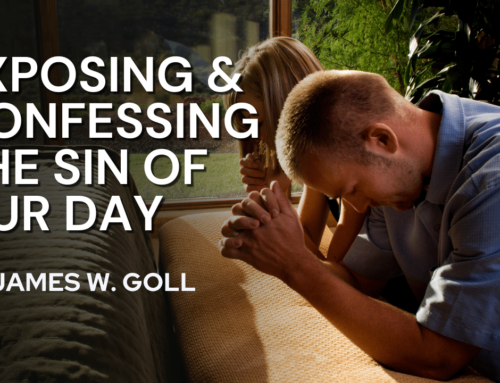
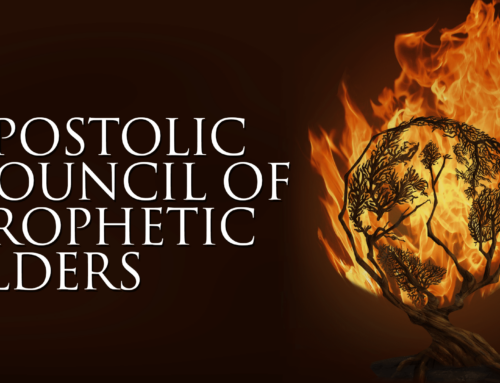
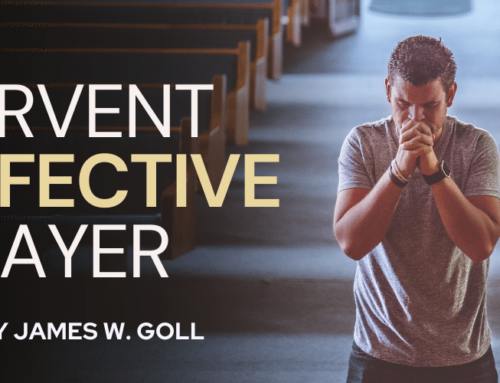
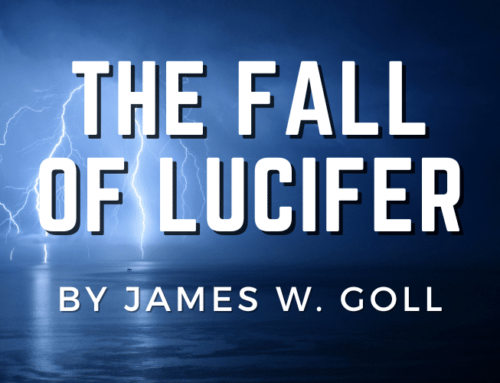
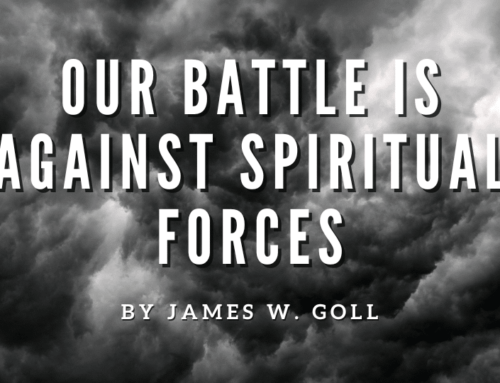
Leave A Comment
You must be logged in to post a comment.